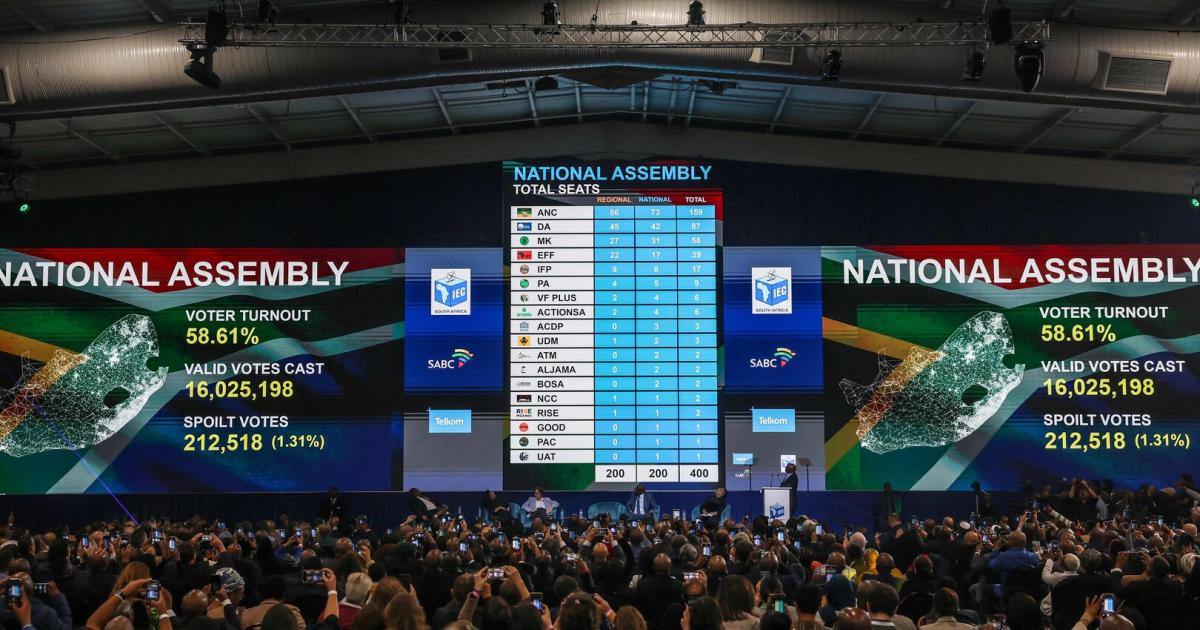President of South Africa Cyril Ramaphosa Confirmed for a second term by the country’s newly elected parliament. Chief Justice Raymond Sondo announced on Friday evening that the 71-year-old had secured 283 of the 339 votes cast. African National Congress (ANC) leader Ramaphosa will now form a new government.
Statement of Purpose
The ANC says it aims to work with all parties represented in parliament. The so-called Government of National Unity is a form of grand coalition, but without fixed coalition agreements. A declaration of intent was signed on Friday with the previous largest opposition party, the Democratic Alliance (DA).
The ANC, the party of former anti-apartheid fighter Nelson Mandela, suffered a massive loss of power in parliamentary elections on May 29. This means the party will no longer rule the continent’s strongest economy alone, but will have to form a coalition for the first time in 30 years. The ANC holds 159 of the 400 parliamentary seats, while the Democratic Alliance is represented in parliament with 87.
John Steenhuizen, a senior DA politician in Cape Town, said a “new chapter” was beginning in South Africa after two weeks of intense negotiations. Such a coalition, which includes other parties, is in the interests of all South Africans as stated in the signed Declaration of Intent.
However, not all ANC representatives were happy to work with the economically liberal Democratic Alliance, which, in the view of some ANC supporters, primarily represented the interests of the white minority in South Africa. Negotiations between the ANC and other parties represented in Parliament are still ongoing. Political commentators have already warned that a national unity government would lead to an unstable and inefficient government.
Reforms are urgently needed in a country of 61 million people. Over the years, South Africa has suffered from a stagnant economy, mass unemployment, deep corruption, weak state-owned enterprises and a crumbling health and education sector.

